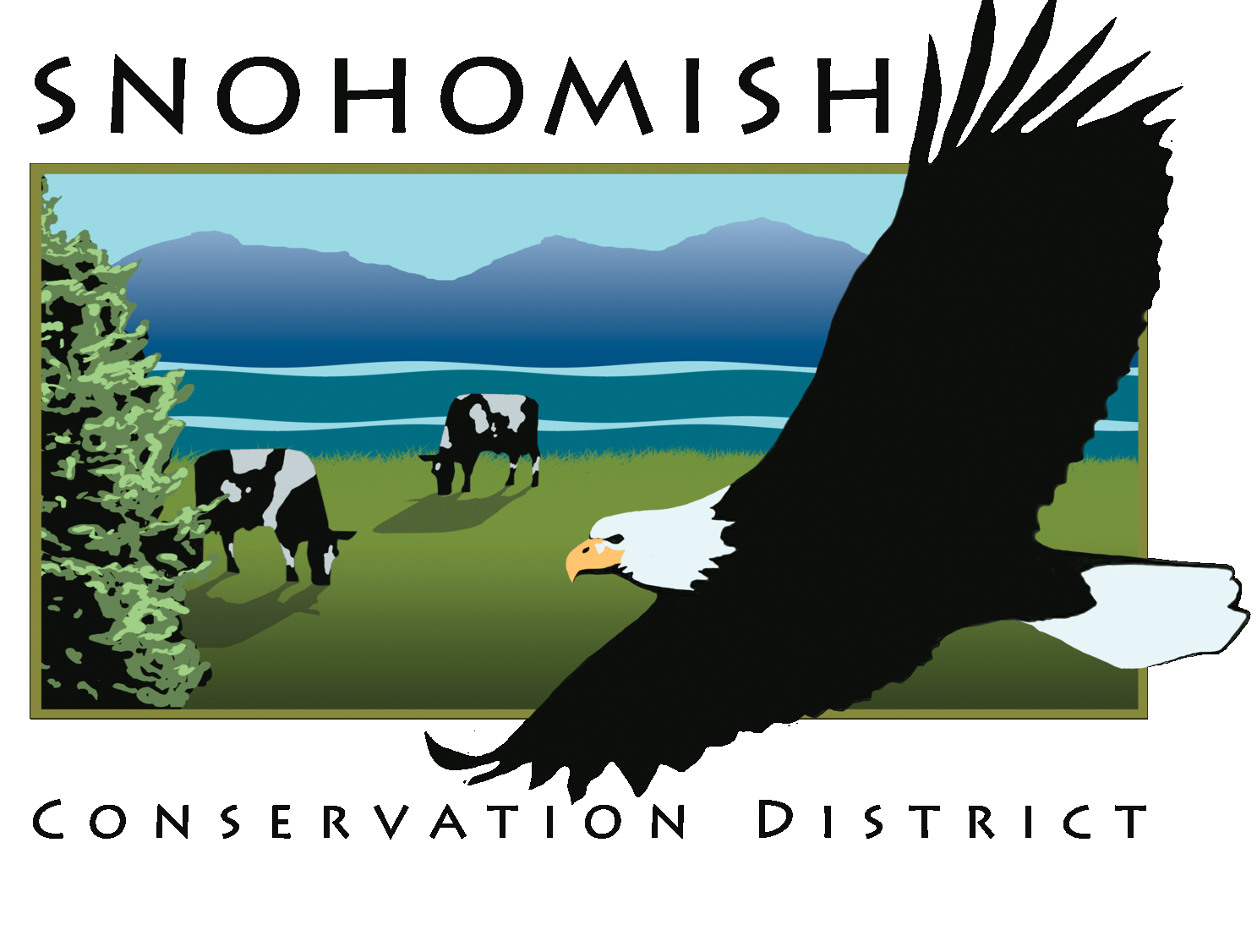Agroforestry Farm Tour Held at Raising Cane Ranch
/Nick Pate of Raising Cane Ranch, in cooperation with Snohomish Conservation District and Washington State University, hosted a group of 33 people at his Snohomish farm the last week of September, to discuss agroforestry opportunities in Western Washington. Attendees came from all along the I-5 corridor from Bellingham to Olympia, with the bulk living and working in Snohomish County.
Topics Included:
Nick’s experience transitioning to agroforestry systems
The research model being used by Mark Batcheler from Washington State University to collect data
Ways to get involved including the utilization of these practices at other western Washington farms
In a break from the pouring rain, attendees of the farm tour walk out to see Nick’s apple trees with hay grown between the rows.
Carrie Brausieck from Snohomish Conservation District provided an overview of agroforestry and explained the different elements of the practices being done on Nick’s property.
Mark Batcheler, a PhD student from Washington State University, reviewed how the testing was done on the hay and apples, and what they will do over the length of the grant.
The attendees were then able to see an older crop of apples on Nick’s property, view his riparian planting buffer, and walk through his food forest. One of the goals of agroforestry is to diversify crops on farmlands, leading to benefits in both economic and ecological diversity and resiliency to a changing climate.
For more information on agroforestry practices, visit our Agroforestry program page or email agteam@snohomishcd.org.
Western Sustainable Agriculture Research & Education logo
U.S. Department of Agriculture National Institute of Food and Agriculture logo
Snohomish Conservation District logo
This material is based upon work that is supported by the National Institute of Food and Agriculture, U.S. Department of Agriculture, under award number 2020-38640-31523 through the Western Sustainable Agriculture Research and Education program under project number FW21-374. USDA is an equal opportunity employer and service provider. Any opinions, findings, conclusions, or recommendations expressed in this publication are those of the author(s) and do not necessarily reflect the view of the U.S. Department of Agriculture.





















